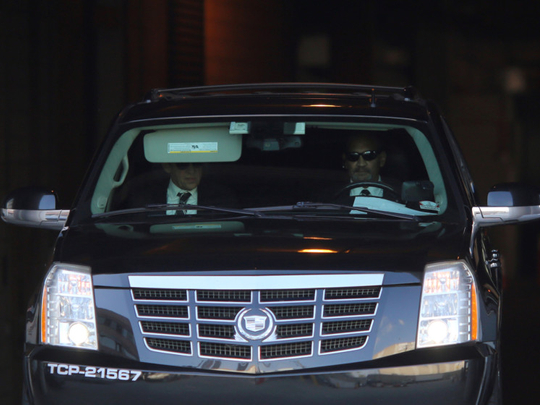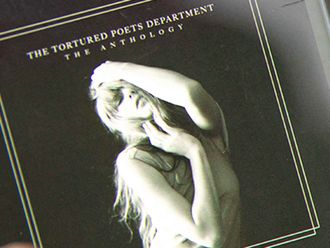
The surviving members of Led Zeppelin were reunited on Friday in a Los Angeles courtroom as bassist John Paul Jones testified in defence of his bandmates in a high-stakes copyright lawsuit that claims the band ripped off a riff used in Stairway to Heaven.
Jones said he never heard the band Spirit play, never met them and didn’t own any of their albums.
The estate for Spirit’s late guitarist Randy Wolfe, also known as Randy California, claims Led Zeppelin lifted a passage from the instrumental Taurus and incorporated it in the well-known introduction to Stairway.
If the estate is successful, it could be worth millions of dollars as the song continues to funnel a fortune to songwriters Jimmy Page and Robert Plant.
Led Zeppelin works that include Stairway to Heaven generated revenues of nearly $60 million (Dh220 million) over the past five years, economist Michael Einhorn testified.
Einhorn, who said he reviewed 50,000 pages of financial documents to reach that figure, conceded on cross-examination that some of the revenues came from a 2008 contract covering the band’s catalogue of 87 songs. Led Zeppelin lawyers contend the contract falls outside the statute of limitations and shouldn’t be included in potential damages.
After Einhorn testified, the plaintiff rested its case. The defence opened with a musicologist, who cast doubt on whether the two songs are substantially similar.
While experts for the plaintiffs previously said there are many similarities between Taurus and the intro to the 1971 Stairway, Lawrence Ferrara said the likeness was limited.
The main trait they shared, a notable descending minor chord progression, is common building block in songs dating back 300 years and is found throughout pop music predating Wolfe’s composition from 1967 or 1968.
“It’s not something anyone can own,” said Ferrara, a music professor at New York University.
Ferrara picked the songs apart note by note, playing the riffs on piano and comparing them to compositions such as My Funny Valentine and the Beatles’ Michelle.
Comparing differences in the arrangement of the same notes in both songs was like rearranging the letters in “treason” to spell “senator,” Ferrara said, noting that the succession of letters makes a difference.
He said similar chord pairs other experts highlighted as important was like comparing pairings of the words “and the” in one short story to another.
“That I would not call a relevant similarity,” Ferrara said.
With Page and Plant seated at the defence table for the fourth day of trial, their bandmate Jones made a brief supporting appearance.
Jones, who is no longer a defendant in the case, provided backup to Page’s testimony that he had never met members of Spirit, despite opening for the band when Led Zeppelin made its US debut in late 1968.
Page has said he knew some of Spirit’s music and owned a couple of their albums, but he never heard Taurus until his son-in-law showed him comparisons to Stairway on the internet a few years ago.
He said he didn’t even realise he owned Spirit’s first album that contained Taurus, until he looked through his collection after the comparisons surfaced.
Page acknowledged, however, that the band played a riff from the song Fresh Garbage, also from that album, in a medley that was a concert staple when first starting out.
Jones, 70, wearing a black suit and black shirt, said he joined Led Zeppelin after his wife learned Page was starting a new group and suggested he call him. Page recruited Plant as singer and drummer John Bonham, who died in 1980.
The band, originally called The New Yardbirds, had a touring obligation for Page’s previous band The Yardbirds, so they needed to come up with material quickly and often played cover songs.
Asked if all the songs were covers, including the medley with Fresh Garbage, Jones said he believed some were Yardbirds tunes.
Jones said he played the Fresh Garbage passage without knowing what it was or who it was by. He said it was just something he heard that he thought was catchy.













